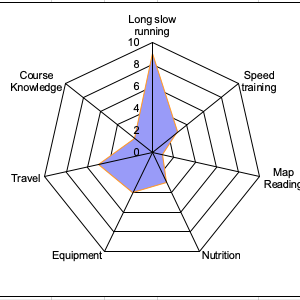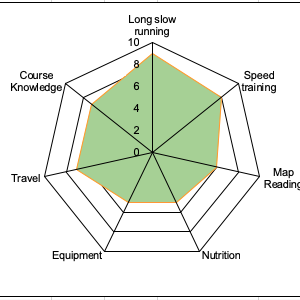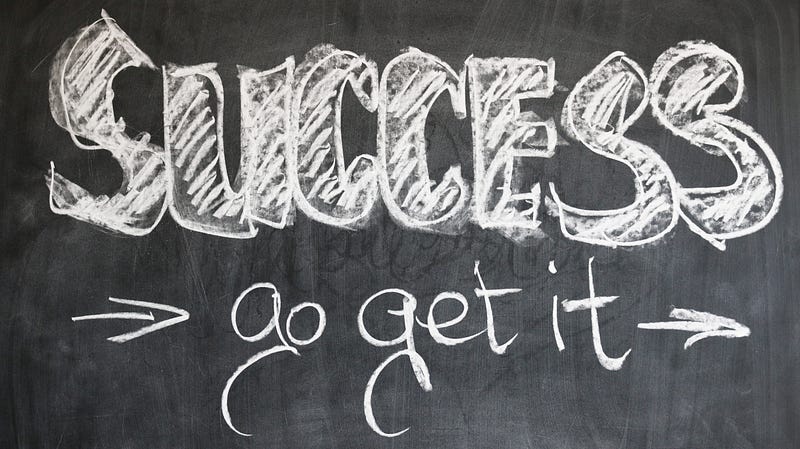Tools used in high-performance sports that deliver success in life

Much of our life is found in challenging environments.
All of us will find, at times, that we are losing control, or perspective, whether in work, education, or even relationships.
There are however some key mental strategies, underpinned by hard science, that can be implemented to enable us to prepare for the difficult times we face.
Many of the following strategies have been taken from high performance sporting environments and applied successfully in careers, and life, outside.
Learn from the best..
1. Managing our responses
Our handling of stress, fear and anxiety, include a combination of responses:
- Physiological, such as clammy hands and heart palpitation
- Cognitive, including decreased rational thinking and memory
- Behavioural, avoiding the situation, nervous pacing, etc.
There is an interaction between our behaviour, our cognition, and our physiology, and changing one will impact the others.
The following can all have a positive effect on our response to fear or anxiety: 1) preparation, and the confidence and sense of control it brings, 2) relaxation, such as deep breathing and meditation, and 3) improving our physical health, and the subsequent physiological resilience it brings.
One particular area of research that has gained considerable interest is how alterations to our behaviour can impact, our response to challenges.
The following Ted talk by Amy Cuddy revisits the old adage ‘fake it, to make it’. With some real research examples, she discusses how our knowledge, and beliefs, can impact our physiology.
Amy ends the talks by suggesting that changing our body language, even standing in an exaggerated, overly confident, manner can impact both our cognitive and our physiological responses.
2. Wheel of success
The ‘wheel of success’ is an excellent method for identifying the list of attributes that need to be improved to reach a goal or complete a task.
One chart is created for where you are now, and another for where you need to be. This can be very applied very practically in work, education, and sporting success.
For example, an endurance athlete aiming to place well in a technical, 100 mile race, may be well trained in terms of long, slow distance running, but require improvements with regards speed. The event may be unmarked and the individual hopeless at map reading.

By identifying the attributes required for success, and assigning current and target scores (usually 1 to 10) we can identify the areas that require most improvement. These can be targeted, steps identified to reach the goals state, and the changes measured over time.

The runner needs to focus time and resource on both speed training and map reading. The former may require changes to a training programme whilst the latter may necessitate appropriate training, and practice before participating in a race.
The wheel can just as easily be applied to other areas of life, including education or work. For example, technical skills may need to be learned, or soft skills, such as relationship built. Identification of the current gaps in our abilities leads to a focus on the building blocks required to deliver a successful outcome.
3. Control the controllables
In life, there are things that can be controlled, and things that cannot.
Even those aspects of our lives we perceive are within our control are often merely wishful thinking. However, as with the well known placebo effect in clinical trials, belief may be enough to provide an advantage.
Increased perceptions of control positively impact both our mental toughness and our motivation, and subsequently improve both our enjoyment and our performance.
For example:
- We cannot control the way a colleague may challenge us over a decision in a meeting, but we can control:
- Our level of preparedness going into the meeting
- The buy-in we get from others in the meeting through prior engagement
2. We often how no control over whether our employer reduces staffing, and the impact it may have on us, but we can control:
- Our competencies, by ensuring appropriate training, whether inside or outside of work
- Maintaining an awareness of the job market and the skills that are sought after
- Ensuring that we are invaluable as a member of the team
Inevitably there will be issues and events, often unforeseen, that cannot be controlled, but a level of confidence and perception of control will be gained from controlling all that we can.
Furthermore, if the uncontrollables can be accepted as not being catastrophic, control can be maintained.
4. Fail to prepare… prepare to fail
Preparation is key in any challenging environment.
One of the best ways to be ready for any eventuality is to make a list (ideally write it down) of all the things that could go wrong, or situations that could be faced.
For example, when planning for a presentation, being unable to find the room, equipment not available, or technical failure, should all be on the list.
Once done, create a set of actions that are needed to put the situation back in our control. This process is dual-purpose, firstly, unforeseen happenings are less likely to result in total failure, and secondly, the potential to increase the perception of control, and improve confidence.
If the computer/projector breaks down..
- I have a set of handouts that I share
- I know my notes inside out or I have prompt cards close to hand
If I’m asked a question in a meeting that I cannot answer..
- I have an expert with me on the call who can answer
- I will promise to answer offline by close of business
Many of the above approaches have been applied successfully with top athletes in situations of high pressure and intensity.
Practicing and knowing when to apply each one can make the difference between success and failure in all areas of life.
Try a number of different approaches, recognise what can be controlled, breakdown bigger problems into smaller ones, and address them individually.

Recent Comments